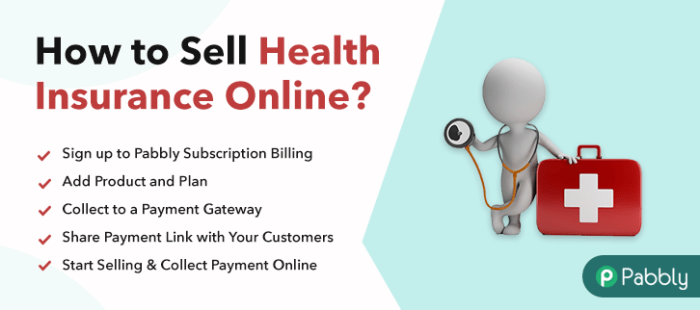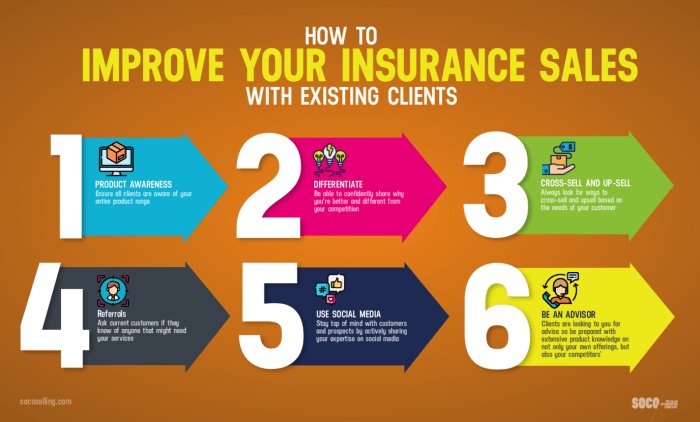In today’s rapidly evolving healthcare landscape, the ability to effectively sell health insurance over the phone has become a crucial skill for insurance professionals. This comprehensive guide delves into the intricacies of phone sales, providing invaluable tips and strategies to help you excel in this dynamic field.
From understanding your audience and building rapport to handling objections and closing the sale, we’ll equip you with the knowledge and skills necessary to navigate the challenges and reap the rewards of selling health insurance over the phone.
Whether you’re a seasoned insurance agent or just starting out, this guide will empower you to connect with customers, address their concerns, and ultimately help them find the health insurance coverage that best meets their needs. So, prepare to unlock your full potential and embark on a journey towards becoming a successful health insurance sales professional over the phone.
Opening Remarks

In today’s market, selling health insurance over the phone has become increasingly significant due to its convenience and accessibility. This method allows individuals to compare plans, understand their options, and make informed decisions without leaving the comfort of their homes.
The phone sales method offers several advantages. It enables insurance agents to reach a wider customer base, especially those in remote or underserved areas. Additionally, it provides flexibility for customers to engage with agents at their convenience, leading to increased engagement and conversion rates.
Advantages
- Convenience: Customers can discuss their needs and concerns from the comfort of their own homes, eliminating the need for travel or in-person appointments.
- Flexibility: Phone sales allow customers to engage with agents at times that suit their schedules, leading to increased accessibility and satisfaction.
- Wider Reach: Insurance agents can reach a broader customer base, including those in remote or underserved areas, expanding their potential market.
- Personalization: Phone conversations enable agents to tailor their approach to each customer’s unique needs and circumstances, enhancing the overall customer experience.
Challenges
- Lack of Personal Interaction: The absence of face-to-face interaction can make it challenging to build rapport and trust with customers, potentially affecting sales outcomes.
- Limited Visual Aids: Agents cannot rely on visual aids or body language to convey information, making it crucial to communicate effectively and clearly over the phone.
- Handling Objections: Dealing with customer objections and concerns can be more challenging over the phone, as agents may not be able to read visual cues or body language.
- Technical Difficulties: Technical issues such as poor connectivity or dropped calls can disrupt the sales process and negatively impact the customer experience.
Understanding Your Audience

Understanding your target audience is crucial in selling health insurance over the phone. Knowing their needs, concerns, and circumstances helps tailor your approach, address their specific questions, and ultimately increase your chances of closing a sale.
To effectively identify and understand your potential customers:
Demographic Factors
- Consider factors such as age, gender, income, location, and family status. Different demographics have varying healthcare needs and financial situations, influencing their insurance preferences.
Health Status and History
- Assess their current health status, pre-existing conditions, and family medical history. This information helps determine the level of coverage they need and the type of plan that best suits their situation.
Financial Situation
- Understand their income level, budget, and financial priorities. This knowledge enables you to recommend plans that align with their financial capabilities and provide the necessary coverage.
Insurance Needs and Concerns
- Identify their specific insurance needs, such as coverage for specific medical expenses, prescription drugs, or dental and vision care. Address their concerns about deductibles, co-pays, and out-of-pocket expenses.
Research and Preparation
- Stay updated on the latest health insurance regulations, plans, and benefits. Thoroughly research the insurance products you offer to provide accurate and comprehensive information to your customers.
Building Rapport

Establishing rapport with customers over the phone is crucial for building a positive and lasting relationship. Here are some effective strategies to achieve this:
Be Friendly and Approachable
A warm and friendly tone can make a big difference in creating a connection with the customer. Greet them with enthusiasm, use a polite and respectful tone, and address them by their preferred name whenever possible.
Listen and Understand
Take the time to listen to the customer’s needs and concerns. Show genuine interest in their situation and ask relevant questions to fully understand their requirements. This demonstrates empathy and shows that you genuinely care about helping them find the best health insurance solution.
Be Patient and Thorough
Remember that not everyone is familiar with the complexities of health insurance. Be patient in explaining the different plans and options available, and take the time to address any questions or concerns the customer may have. Provide clear and concise explanations, avoiding jargon and technical terms as much as possible.
Offer Personalized Solutions
Instead of pushing a specific plan, focus on understanding the customer’s unique needs and preferences. Tailor your recommendations to their situation, considering factors such as their budget, coverage requirements, and any pre-existing conditions they may have. This shows that you’re genuinely interested in finding the best fit for them, not just making a sale.
Be Genuine and Authentic
Be yourself and let your genuine personality shine through. Customers appreciate authenticity and can relate to a genuine and genuine salesperson more easily. This helps build trust and creates a more meaningful connection.
Active Listening and Empathy
In the realm of phone sales, active listening and empathy are indispensable tools for forging meaningful customer interactions and driving successful outcomes. These skills enable sales representatives to comprehend customers’ needs, address their concerns, and present tailored solutions that resonate with their unique situations.
By employing active listening techniques, sales representatives can demonstrate genuine interest in what customers have to say, ensuring that their messages are fully understood and acknowledged. This involves paying close attention to both verbal and nonverbal cues, such as tone of voice, choice of words, and body language, to gain a deeper understanding of customers’ sentiments and motivations.
Demonstrating Active Listening and Empathy
- Restate and Paraphrase: Echoing customers’ statements in different words demonstrates that their concerns are being heard and understood. This also provides an opportunity to clarify any misunderstandings and ensure that both parties are on the same page.
- Ask Open-ended Questions: Encouraging customers to elaborate on their needs and concerns through open-ended questions allows sales representatives to gather more in-depth information and uncover potential pain points that may not have been initially expressed.
- Empathize with Customers’ Situations: Demonstrating empathy involves acknowledging and understanding customers’ emotions, both positive and negative. By showing genuine care and concern, sales representatives can build trust and rapport, making customers more receptive to proposed solutions.
- Avoid Interruptions: Allowing customers to fully express themselves without interruptions shows respect for their time and perspective. This creates a conducive environment for open communication and helps build a strong foundation for a productive conversation.
Handling Objections and Concerns

Handling customer objections and concerns is a crucial aspect of effectively selling health insurance over the phone. By addressing objections and concerns professionally and empathetically, you can build trust, overcome resistance, and increase the chances of closing the sale.
Here’s a framework to help you handle objections and concerns:
Acknowledge and Validate
Begin by acknowledging the customer’s objection or concern. Show that you understand their perspective and validate their feelings. This demonstrates empathy and helps establish a connection.
Ask Open-ended Questions
Ask open-ended questions to gather more information about the customer’s objection or concern. This helps you better understand their needs and tailor your response accordingly.
Provide Clear and Accurate Information
Provide clear and accurate information to address the customer’s objection or concern. Use simple language and avoid jargon or technical terms that may confuse the customer.
Offer Solutions and Benefits
Offer solutions or benefits that directly address the customer’s objection or concern. Highlight how the health insurance plan you’re offering can meet their specific needs and provide value.
Address Common Objections
Be prepared to address common objections related to health insurance, such as:
- Cost: Address concerns about the cost of the health insurance plan by highlighting its value and benefits, such as comprehensive coverage, low deductibles, and out-of-pocket expenses.
- Coverage: Address concerns about the coverage provided by the health insurance plan by explaining its benefits, such as coverage for preventive care, prescription drugs, and specialist visits.
- Network: Address concerns about the health insurance plan’s network of providers by highlighting its extensive network of hospitals, clinics, and doctors.
- Claims Process: Address concerns about the claims process by explaining how it works and providing information about the customer’s responsibilities.
Product Knowledge and Expertise

Possessing a comprehensive understanding of the health insurance products you’re offering is essential for effective sales conversations. Equip yourself with in-depth knowledge of the various plans, coverage options, benefits, and exclusions. Stay updated on the latest industry trends, regulatory changes, and new product offerings to provide accurate and informed advice to your clients.
Continuous Learning and Development
- Dedicate time to studying product brochures, policy documents, and training materials provided by the insurance company.
- Attend webinars, seminars, and workshops to enhance your knowledge and stay current with industry developments.
- Subscribe to industry publications, blogs, and newsletters to stay informed about the latest news and trends.
- Seek opportunities to shadow experienced agents or participate in mentorship programs to gain valuable insights and best practices.
Closing the Sale

Confidently and professionally requesting a customer’s commitment is crucial in securing a sale. It’s a moment that requires finesse and the ability to address any remaining doubts or concerns.
The following strategies can help you overcome customer hesitation and secure their commitment:
Building Confidence
- Believe in Your Product: Thoroughly understand and genuinely believe in the benefits of the health insurance plan you’re offering. Your conviction will shine through and inspire trust in the customer.
- Practice Active Listening: Listen attentively to the customer’s needs, concerns, and objections throughout the conversation. This demonstrates your genuine interest in their well-being and helps you tailor your pitch accordingly.
- Emphasize Benefits: Clearly communicate how the health insurance plan directly addresses the customer’s needs and concerns. Highlight the benefits that align with their priorities and show how the plan can positively impact their health and financial well-being.
Handling Objections and Concerns
- Acknowledge and Validate: Acknowledge and validate the customer’s objections and concerns. Show empathy and understanding, assuring them that their concerns are valid and important.
- Provide Clear and Concise Answers: Address objections with clear, concise, and informative answers. Provide specific examples and data to support your claims and demonstrate the value of the health insurance plan.
- Address Cost Concerns: If cost is a concern, explain the long-term value of the health insurance plan. Emphasize the potential savings on healthcare expenses and the peace of mind that comes with having comprehensive coverage.
Securing Commitment
- Ask for the Sale Confidently: At the appropriate moment, confidently ask for the sale. Use a clear call to action, such as, “Would you like to proceed with enrolling in the health insurance plan today?”
- Offer Assistance: If the customer expresses hesitation, offer assistance in completing the enrollment process. This shows your willingness to go the extra mile and helps overcome any perceived barriers.
- Close with Confidence: Once the customer agrees to purchase the health insurance plan, close the sale with confidence and gratitude. Thank the customer for their trust and assure them that they’ve made a wise decision.
Following Up and Building Relationships

Maintaining contact with customers after a sale is crucial for building lasting relationships and driving repeat business.
Here are some tips for following up with customers and fostering long-term relationships:
Regular Check-Ins
Regularly reach out to customers to check on their satisfaction with their health insurance plan and address any concerns or questions they may have.
Personalized Communication
Personalize your communication with customers by using their name, remembering their specific needs and preferences, and tailoring your messages accordingly.
Value-Added Content
Provide customers with valuable content and resources, such as health tips, wellness advice, and information about new products or services that may benefit them.
Customer Feedback
Encourage customers to provide feedback on their experience and use their input to improve your products, services, and customer service.
Referral Program
Implement a referral program to incentivize customers to refer their friends and family to your health insurance services.
Special Promotions and Offers
Offer special promotions, discounts, or exclusive access to new products or services to loyal customers as a way to show appreciation and encourage repeat business.
Building Trust
Be honest, transparent, and reliable in all your interactions with customers. Building trust is essential for fostering long-term relationships.
Customer Appreciation Events
Host customer appreciation events, such as workshops, seminars, or social gatherings, to connect with customers in person, show your appreciation, and strengthen relationships.
Continual Sales Skills

With fierce competition and ever-evolving consumer preferences, the sales industry demands continuous refinement of skills and strategies to remain successful. Embracing feedback and actively seeking opportunities to enhance your sales techniques can help you adapt to the dynamic sales landscape and consistently surpass your targets.
Tips for Continual Sales Skills
Seeking feedback can be done through various methods. Encouraging customer reviews and feedback can provide valuable insights into how your sales approach is perceived by clients. Additionally, constructive feedback from peers and supervisors can highlight areas for improvement and areas of strength.
Another crucial step is reflecting on your performance. Dedicating time to review your sales records, customer interactions, and overall performance can help you identify patterns, strengths, and weaknesses. This introspective process allows you to fine-tune your sales techniques and focus on areas that require attention.
Furthermore, making improvements involves adopting new strategies and incorporating best practices. Attend sales training, read sales literature, and seek out mentorship opportunities to acquire new knowledge and techniques. This commitment to professional growth will set you apart as a skilled and adaptable sales professional.
Finally, staying updated on industry trends and market dynamics is essential. Keep abreast of the latest technologies, sales trends, and consumer preferences to ensure your sales approach is in line with current market realities. This proactive stance will enable you to adapt quickly to changes and continue to achieve sales success.
Conclusion
As you embark on your journey as a health insurance sales professional over the phone, remember that continuous improvement is key to sustained success. Seek feedback from customers and colleagues, analyze your performance metrics, and make adjustments to your approach accordingly.
Stay updated on the latest industry trends, product offerings, and regulatory changes to remain a valuable resource for your clients. By embracing a growth mindset and honing your skills, you’ll not only increase your sales but also build lasting relationships with customers, leading to a fulfilling and rewarding career in the health insurance industry.
Helpful Answers
How can I effectively communicate with customers over the phone?
Effective communication over the phone requires clarity, conciseness, and adaptability. Speak clearly and at a moderate pace, ensuring your message is easily understood. Tailor your communication style to the customer’s personality and needs. Use active listening skills to fully comprehend their concerns and respond empathetically.
Avoid jargon and technical terms, opting for simple language that resonates with the customer.
What are some common objections I might encounter when selling health insurance over the phone, and how should I handle them?
Common objections include concerns about cost, coverage limitations, and the claims process. Address objections professionally and confidently. Provide clear explanations of the benefits and value of the health insurance plan. Offer alternative options that align with the customer’s budget and needs.
Demonstrate empathy and understanding, acknowledging their concerns and providing tailored solutions. Maintain a positive attitude and focus on building trust to overcome objections and secure the sale.
How can I build rapport with customers over the phone?
Building rapport over the phone requires establishing a genuine connection with the customer. Start by introducing yourself warmly and professionally. Use the customer’s name throughout the conversation to create a sense of familiarity. Show empathy and understanding by actively listening to their concerns and needs.
Ask open-ended questions to encourage dialogue and demonstrate your interest in their situation. Be patient and allow the customer to express their thoughts and feelings. By fostering a positive and trusting relationship, you’ll increase the likelihood of a successful sale.



